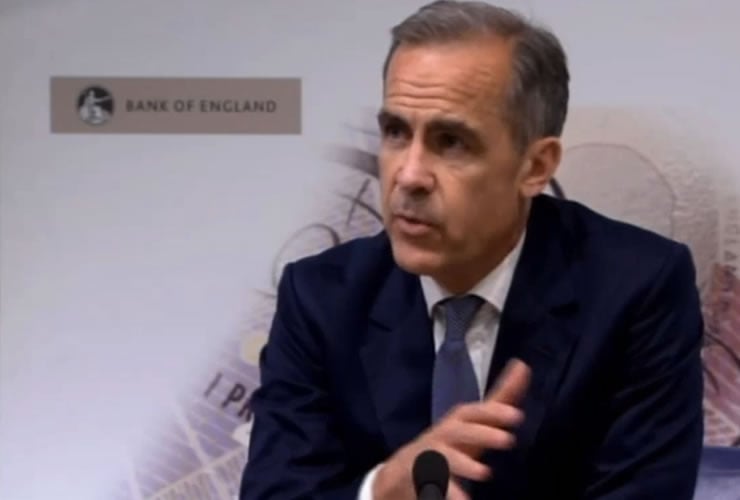Bank of England Moves Against 'Crystallising Threats' to UK Economy
The Bank of England’s Financial Policy Committee (FPC) has cut the capital buffer placed on banks in order to try and mitigate against crystallising threats to the UK economy.
The UK economy is subject to growing risks warns the Bank of England whose FPC has today cited a slew of crystallising threats to the UK economy following the decision to leave Europe.
The warning comes a day after a shock decline in construction activity being reported by Markit and the CIPS in their latest Construction PMI report.
We have warned that the poor data could be the starting gun to the recession now being forecast by leading analysts.
The Bank of England's FPC notes that emerging threats to the economy include:
1) The ability to finance the United Kingdom’s large current account deficit, which relied on continuing material inflows of portfolio and foreign direct investment;
2) The UK commercial real estate (CRE) market, which had experienced particularly strong inflows of capital from overseas and where valuations in some segments of the market had become stretched;
3) The high level of UK household debt which is vulnerable to higher unemployment and borrowing costs of the capacity of some households to service debts
4) The potential for buy-to-let investors to behave procyclically, amplifying movements in the housing market;
5) Subdued growth in the global economy, including the euro area, which could be exacerbated by a prolonged period of heightened uncertainty; and
6) Fragilities in financial market functioning, which could be tested during a period of elevated market activity and volatility.
In response to the emerging threats, the FPC reduced the UK countercyclical capital buffer (CCyB) rate from 0.5% to 0% of banks’ UK exposures with immediate effect.
This is a reversal of the decision made as recently as March to increase the CCyB to 0.5% starting in April 2017.
The counter cyclical capital buffer aims to ensure that banking sector capital requirements grow in the good times to ensure the banking sector does not get ahead of itself and create bubbles such as that which popped in the 2008 financial crisis.
And, “in downturns, the regime should help to reduce the risk that the supply of credit will be constrained by regulatory capital requirements that could undermine the performance of the real economy and result in additional credit losses in the banking system,” says a note on the buffer from the Bank for International Settlements.
Indeed, in his press conference following the release of the Report Carney says the decision to cut the buffer rate would hopefully boost lending to the real economy by domestic banks.
Furthermore, the settings will rely in place for some time, to provide stability to the banking sector.
“Absent any material change in the outlook, and given the need to give banks the clarity necessary to facilitate their capital planning, the FPC expects to maintain a 0% UK countercyclical capital buffer rate until at least June 2017,” reads the Financial Stability Report.
That Current Account Deficit Remains Key Threat to Sterling
The Report raised concerns over the United Kingdom’s current account deficit which remains high by historical and international standards. The deficit now stands at £32.6BN - or around 7% of UK GDP.
We have warned time and again that the current account deficit is the obvious path to a notably lower pound exchange rate.
The financing of the deficit is reliant on continuing material inflows of portfolio and foreign direct investment, which have been used to finance the public sector deficit and corporate investment, including in commercial real estate.
The Bank notes the run-up to the referendum, there were signs that foreign portfolio inflows into UK equities had slowed.
Hence the downward pressure on the GBP exchange rate.
The report warns:
“During a prolonged period of heightened uncertainty, the risk premium on UK assets could rise further and overseas investors could continue to be deterred from investing in the United Kingdom.
“Persistent falls in capital inflows would be associated with further downward pressure on the exchange rate and tighter funding conditions for UK borrowers.
However, Carney has noted that the downward adjustment in Sterling was expected and it would help the economy adjust to the new economic reality.
Analysts now expect the Bank to to cut the basic rate to 0.25% in July while a potential expansion of the MPC asset purchase programme may also be announced.




